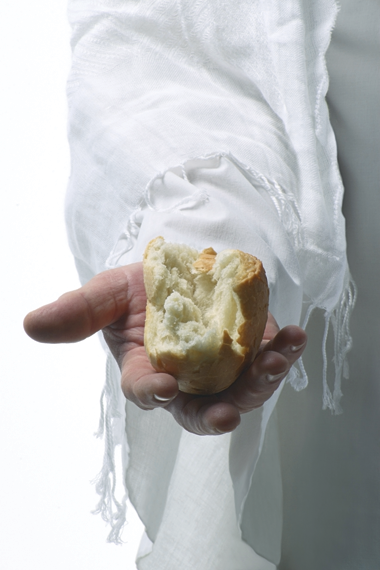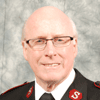 You give them something to eat” (Luke 9:13). Jesus' emphasis was unmistakable. The Twelve Disciples could have been forgiven for the puzzled looks on their faces. They were in a “deserted place.” They were in the midst of a hungry crowd of people and there was no Tim Hortons nearby, even if they had cash. So the suggestion that the crowd be sent away to find their own provisions made sense to them. What did not make sense was the response of Jesus.
You give them something to eat” (Luke 9:13). Jesus' emphasis was unmistakable. The Twelve Disciples could have been forgiven for the puzzled looks on their faces. They were in a “deserted place.” They were in the midst of a hungry crowd of people and there was no Tim Hortons nearby, even if they had cash. So the suggestion that the crowd be sent away to find their own provisions made sense to them. What did not make sense was the response of Jesus.
The words jarred, they jolted. When the disciples of Jesus pooled resources at hand, they responded, “We have no more than five loaves and two fish….” A huge and hungry crowd on one hand; five small loaves of homemade bread and a couple of freshwater fish on the other. Give them something to eat? With these? That's like trying to feed a Shriner's convention with food from the Ruby Café in Dog River (fans of Corner Gas will understand).
Captains (Dr.) Paul and Pedrina Thistle serve at The Salvation Army's Howard Hospital in Zimbabwe. They constantly live with the tension between overwhelming human need and the hospital's provisions. Zimbabwe's rate of inflation effectively negates the hospital's purchasing power. And Captain Paul Thistle is one of a handful of doctors for a huge region and population. But when children and parents come to the hospital for treatment, the captains hear the words: “You give them something.”
Jesus instructed the Twelve Disciples to sit the crowd in groups of about 50 each. “And taking the five loaves and the two fish, he looked up into Heaven, and blessed and broke them, and gave them to the disciples to set before the crowd” (Luke 9:16 NRSV). Took. Blessed. Broke. Gave.
Luke's Gospel repeats these words. In an upper room on the night Jesus was arrested, “he took a loaf of bread, and when he had given thanks, he broke it and gave it to them” (Luke 22:19 NRSV). On the road to Emmaus, the risen Christ conversed with two puzzled followers. He agreed to stay with them for the evening, and “when he was at the table with them, he took bread, blessed and broke it, and gave it to them” (Luke 24:30 NRSV). Took. Blessed. Broke. Gave. Walter Brueggemann argues, “These are the four decisive words of our sacramental existence.” The Salvation Army's poet General, Albert Orsborn, understands their sacramental nature: “My life must be Christ's broken bread … That other souls, refreshed and fed, may share his life through mine” (SASB 512). Took. Blessed. Broke. Gave.
Luke concludes this incident by noting that the crowd ate their fill, and “what was left over was gathered up, 12 baskets of broken pieces” (Luke 9:17 NRSV). Jesus refused to determine his ministry by the adequacy of resources. In his hands inadequate resources become sacramental provisions.
Captains Thistle understand the sacramental nature of their work. Taking the resources provided by Christian institutions and Jewish colleagues in Toronto, they take, bless, break and give. Is it sufficient for their region in Zimbabwe? Probably not. But it's what they do in response to the injunction: “You give them something to eat!”
The Salvation Army's mission of “meeting human need” brings us face-to-face with insurmountable need, especially during difficult economic times. Budgets are a matter of integrity. Difficult choices do need to be made. But we also need to be careful not to let our culture determine the way we understand “scarcity” and “abundance.” In the face of overwhelming human need it is understandable that we say, “But we have no more than … ”—until we are jarred by the words of our Lord, “You give them something to eat.” Then we are invited to place what inadequate resources we have in the hands of Christ for him to take, bless, break and give. And perhaps even to gather up what is left over, baskets of broken pieces.
 Major Ray Harris is a retired Salvation Army officer. He enjoys watching Corner Gas reruns and running in Winnipeg's Assiniboine Park.
Major Ray Harris is a retired Salvation Army officer. He enjoys watching Corner Gas reruns and running in Winnipeg's Assiniboine Park.









Comment
On Wednesday, November 4, 2009, Rob Jeffery said:
Leave a Comment